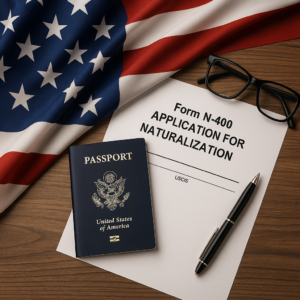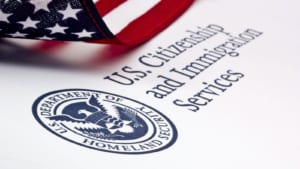As posted on the United States Citizenship and Immigration Services (“USCIS”) website, on January 20, 2025, President Trump issued Executive Order (“EO”) 14159, “Protecting the American People Against Invasion”. The EO directs the Department of Homeland Security (“DHS”) to ensure that aliens comply with their duty to register with the government. Failure to comply with the registration requirement is treated as a civil and criminal enforcement priority.
The DHS requires that, with limited exceptions, all aliens 14 years of age or older who were not registered and fingerprinted (if required) when applying for a U.S. visa, and who remain in the United States for 30 days or longer, must apply for registration and fingerprinting. Similarly, parents and legal guardians of aliens below the age of 14 must ensure that those child aliens are registered. Within 30 days of reaching his or her 14th birthday, all previously registered aliens must apply for re-registration and to be fingerprinted.
Once an alien has registered and appeared for fingerprinting (unless waived), DHS will issue evidence of registration. Aliens over the age of 18 must carry and keep their evidence of registration in their personal possession at all times.
How To Determine If You Are Registered
Anyone who has been issued one of the documents designated as evidence of registration has already registered. Also, anyone who submitted one of the forms provided fingerprints (unless waived) and was not issued one of the pieces of evidence, has complied with the registration requirement . Aliens who have already registered include:
- Lawful Permanent Residents;
- Aliens paroled into the United States even if the period of parole has expired;
- Aliens admitted to the United States as nonimmigrants who were issued Form I-94 or I-94W (paper or electronic), even if the period of admission has expired;
- All aliens present in the United States who were issued immigrant or nonimmigrant visas before their last date of arrival;
- Aliens whom DHS has placed into removal proceedings;
- Aliens issued an Employment Authorization Document;
- Aliens who have applied for lawful permanent residence using Forms I-485, I-687, I-691, I-698, I-700, and provided fingerprints (unless waived), even if the applications were denied; and
- Aliens issued Border Crossing Cards.
You Must Register Within 30 Days If You:
- Are 14 or older, were not registered and fingerprinted when applying for a U.S. visa, and stay in the U.S. for 30+ days;
- Are a parent or legal guardian of an unregistered child under 14 who stays in the U.S. for 30+ days;
- Turn 14 in the U.S. after previously registering.
Criminal Penalties for Willful Failure or Refusal to Register or Provide Biometrics (if required)
Any alien willfully failing or refusing to register or provide biometrics (if required) is a misdemeanor. Parents or guardians who fail to register a child under 14 years old also will face penalties. Upon conviction, violators may be fined up to $5,000, imprisoned for up to 6 months, or both.
Criminal Penalties for Failure to Carry Evidence of Registration
Aliens 18 years and older must carry proof of registration at all times. Failure to do so is a misdemeanor, with penalties of up to US$5,000 in fines, 30 days in jail, or both.
Criminal and Immigration Penalties for Failure to Update Your Address with USCIS
All aliens must report any change of address to USCIS within 10 days. Failing to notify USCIS of a change of address within 10 days is a misdemeanor, punishable by a fine of up to US$5,000, imprisonment for up to 30 days, or both. Noncompliance may also lead to deportation unless the alien can prove the failure was excusable or not willful.
For more information on the Executive Order requiring alien registration, please contact Enterline & Partners at info@enterlinepartners.com.
For similar policy changes, you can also read:
- USCIS May Collect Social Media for Online Visa Application
- USCIS No Longer Accept I-407 at International Field Offices
- CDC Removes COVID-19 Vaccination Requirement for Immigrant Visa Applicants
- Stay updated through U.S. Visas News
ENTERLINE & PARTNERS CONSULTING
Ho Chi Minh City, Vietnam Office
146C7 Nguyen Van Huong St, Thao Dien Ward,
District 2, Thu Duc City
Ho Chi Minh City, Vietnam
Tel: +84 933 301 488
Email: info@enterlinepartners.com
Facebook: Enterline & Partners – Dịch vụ Thị thực và Định cư Hoa Kỳ
YouTube: @EnterlineAndPartnersConsulting
Website: http://enterlinepartners.com
Manila, Philippines Office
LKG Tower 37th Floor
6801 Ayala Avenue
Makati City, Philippines 1226
Tel: +63 917 543 7926
Email: info@enterlinepartners.com
Facebook: Enterline and Partners Philippines
Website: https://enterlinepartners.com/language/en/welcome/
Copyright 2025. This article is for information purposes only and does not constitute legal advice. This article may be changed with or without notice. The opinions expressed in this article are those of Enterline & Partners only.




